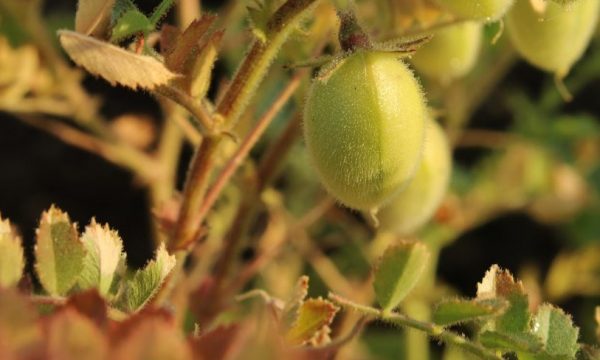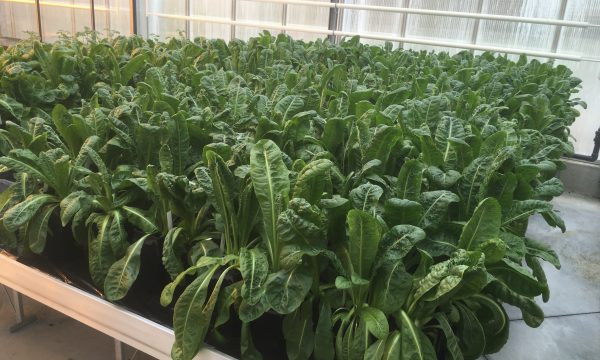Project news High-quality oils grown locally offer opportunities in bio-based economy

Processors, traders and researchers with an interest in oilseed crops came together for the first time this summer for an inspiration session. This session was part of the cross-border project 'Growing a green future', which aims to establish new chains for the bio-based economy.
Missing link in the chain
On June 21, 2018, a first inspiration session for processors, traders and researchers who are interested in the cultivation and processing of oilseed crops and their food and non-food applications took place in Ghent. The main goal of this session was to inspire processors and generate interest for further product development with a specific oil. Indeed, currently the link between the agricultural sector and processors is often still missing and there is too little awareness that both parties gain from supplying and processing local plant-based oils.
Plant-based oils: from energy supplier to functional food
Prof Em. Roland Verhé opened the afternoon with a presentation of how to valorize plant-based oils as raw material for food and non-food products. Fats in oils offer more than just energy: they also make food tastier, provide texture and positively influence mouthfeel (think of chocolate). Increasingly, oils are also valued as providers of omega-3 and omega-6 fatty acids, fat-soluble vitamins, cholesterol-lowering agents and as antioxidants. A good example of an oil that fits into the bio-based economy is this one based on grape and other berry seeds. As a by-product of the fruit juice industry, the residual fraction that contains the kernels is purified. The seeds are pressed into a high-quality oil that can be used as salad oil or in cosmetics. Pumpkin seed and hemp oils also have a unique flavor and specific functional properties that are appreciated by consumers.
Food, local oils get interest from top chefs
Bart Van Droogenbroeck of ILVO and the Food Pilot discussed the possible applications of pumpkin, snakeweed and deder oil. The Food Pilot obtained seed oil by cold pressing based on the seed harvest from Herent and Zeeland. In the project, they want to develop a product from a specific oil from local cultivation based on the interest of relevant stakeholders. Peter De Rijcke of Migino completed the possibilities and trends for food applications. Indeed, Migino prepares flavorful nut and seed oils rich in aromas, based on carefully selected raw materials and a unique production process. According to him, the current niche market of oils is growing and there is interest from several top chefs. Local cultivation of the raw materials adds value to the product, as does organic production methods, and in addition, consumers are sensitive to the positive health aspects. In summary, pumpkin seed oil currently appears to be the most interesting for food applications.
Non-food, marigold oil as high-quality alternative in sustainable paints?
Jeroen Geuens of the Karel de Grote Hogeschool (Center of Expertise for Sustainable Chemistry) then explained some of the possible non-food applications. He went on to discuss the potential of marigold oil (Calendula officinalis) as a possible replacement for tung oil for various industrial applications such as alkyd resins in paints. After all, the current market for tung oil is not stable and the raw materials come from China and Brazil. Marigold can easily be grown locally, and the oil from the seeds could provide high added value as a by-product. However, the market is still new, so that no conclusive answer could yet be given to the question of what the current market value is. ILVO is currently working on automating the harvest.
Catalog of high quality oils grown locally
The project partners bundled all current knowledge of the various vegetable oils into a catalog. The fatty acid profile, oxidative stability and side components of deder, caraway, coriander, cuphea, pumpkin and snakeweed, among others, are covered, together with an overview of the possible food and non-food applications. The first version is available on the website which will be updated during 2019 based on further project results.
Local cultivation, innovation garden provides first estimate of feasibility
Ine Vervaeke of Proefcentrum Herent explained the current cultivation knowledge and possibilities of the crops that were discussed. After all, since 2017 an innovation garden has been constructed in Herent where various crops are tested and demonstrated. Even if a crop is really promising, more is needed to achieve profitable cultivation and applications. With marigold, the next step was taken in the Vlaio project 'Marigold: a golden opportunity'. The project focuses on variety and fertilizer trials and the development of flower harvesting machinery. The processing and marketing of marigolds is a parallel action point.
Thus, to make local cultivation possible, there are often still bottlenecks. For example, harvesting pumpkin seeds on a larger scale requires a specific harvesting machine and the quick rinsing and drying of the seeds can still become a stumbling block. For deder, the cultivation technique is the furthest along, and the short growth period (84 days in 2017) means that the crop can also be used as a pre- or post-crop. The uneven maturity is the major challenge with snakeweed and consequently further selection is a necessity. There is still very little experience with Cuphea or match plant as a local crop, the crop was included in the innovation garden in Herent for the first time in 2018. Pre-sowing in tray proved to be necessary to lift the seed dormancy. The results of the innovation garden in Herent were compiled in a convenient cultivation guide.
Project title: Growing a green future
Funding: Interreg V
Term: 2017 -2019
Partners: Delphy, Provincie Vlaams Brabant (PVB), Ecotreasures, Cradle Crops, Agrodome, Rusthoeve, Millvision, ZLTO, Inagro, Karel de Grote Hogeschool.



